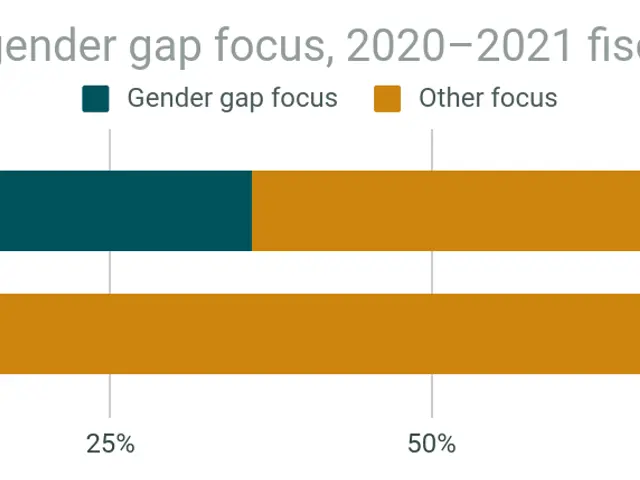Elderly poker player clinches victory at Women's WPT tournament, stirring controversy
In the world of poker, a contentious issue has been brewing: the participation of men in women's tournaments. This controversy arises from concerns about fairness and whether men have a competitive advantage in events designed specifically for female players.
Historically, efforts have been made to prevent men from entering these tournaments. Many poker organisations host women-only events, such as the WSOP Ladies Event, which are officially restricted to women. However, enforcement depends largely on self-identification and honesty.
The debate extends beyond the poker tables. Notable players like Annie Duke have avoided playing in women-only events, believing that separate events imply intellectual differences between genders. Meanwhile, some argue that these events are essential to promote and support women in poker, a field traditionally dominated by men.
The latest chapter in this ongoing saga unfolded at the World Poker Tour (WPT) Event #48: $250 Ladies No-Limit Hold'em, held at Seminole Hard Rock Hotel & Casino in Hollywood, Florida. The event drew 83 entrants, creating a prize pool of $17,430, and saw the only man in the tournament, 70-year-old David Hughes, take the first-place prize of $5,555.
Charlie Carrel, a known opinionated figure in the poker world, found Hughes' victory amusing and sparked a heated, divided reaction on social media. Carrel questioned why no one would speak out if a man decided to "identify" as a woman and enter the tournament, implying that silence would be unacceptable.
Prominent poker figures offered additional bounties for eliminating Hughes, but none were successful. Linda Johnson, a member of the Poker Hall of Fame, expressed her views, stating she wouldn't have a problem with tournaments for specific criteria but doesn't think men should play in women's tournaments.
Florida state law prevents organisers from barring men from participating, adding another layer to the debate. In response, some tournaments have implemented measures to deter men from entering. For example, the World Series of Poker (WSOP) increased the buy-in for the Ladies Event to $10,000 in 2013, with women receiving a 90% discount, effectively making it a $1,000 buy-in for them. However, this move didn't stop men from entering the tournament, with examples given of Tony Roberts and Tom Hammers participating for different reasons.
As the debate continues, concerns about fairness, gender support, and inclusivity in poker are at the forefront. The issue highlights the complex balance between providing women with their own space to play and offering opportunities, and the need for clear, fair, and inclusive rules in all aspects of the game.
Turning to the casino-and-gambling world, the highly debated activity roped in sports as well, when Charlie Carrel, a known poker figure, humorously questioned why no one would object if a man chose to "turn around" and "identify" as a woman to enter a women's poker tournament, implying a double standard in the enforcement of restrictions. Meanwhile, Linda Johnson, a Poker Hall of Fame member, echoed sentiments against men participating in women's tournaments.






